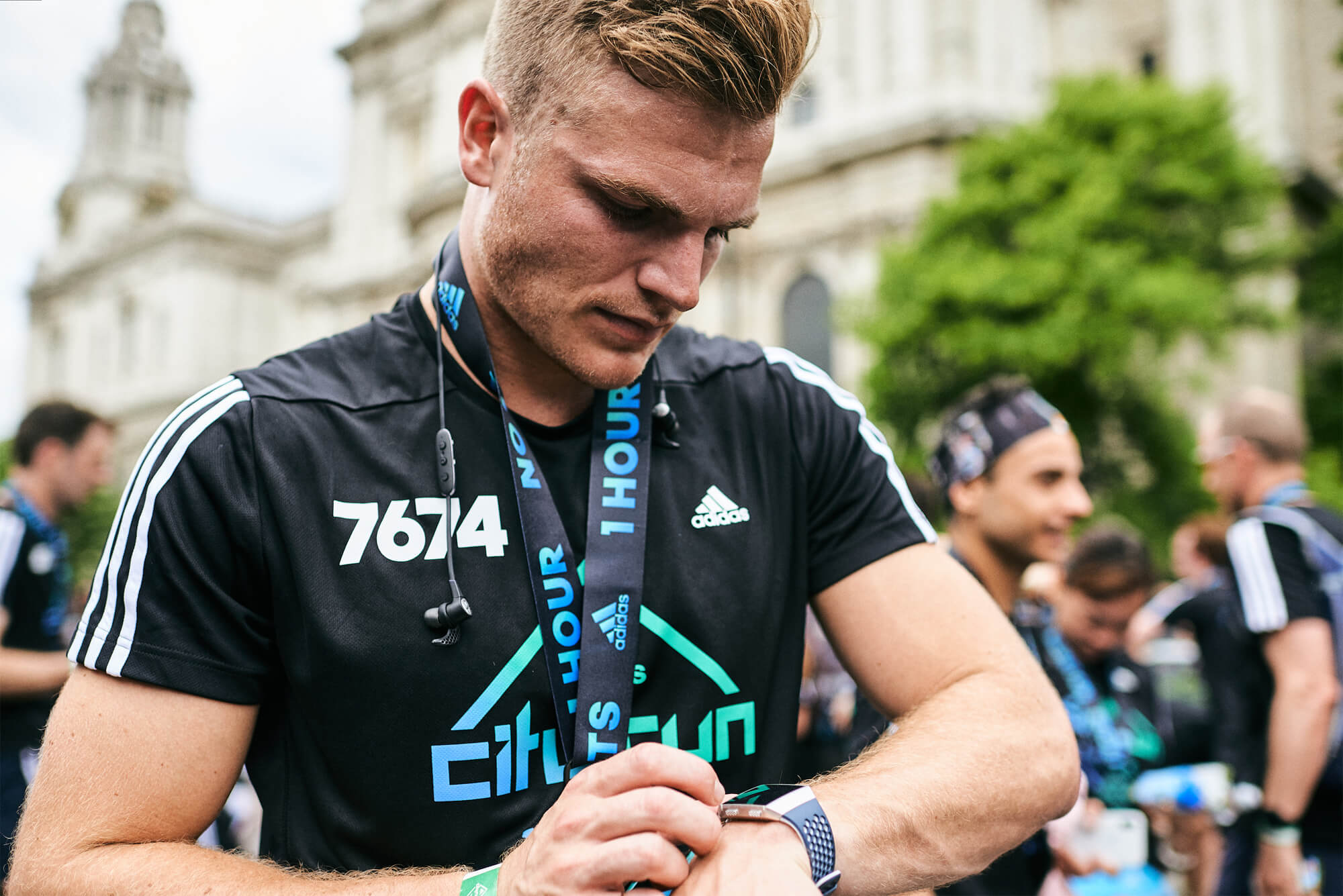
Signing up to your first endurance event is an exciting yet daunting challenge, but with the right training and nutrition programme, you can finish the race in a quicker time than you ever imagined. Whether you’re planning to run a 5K or a marathon, your training and diet plans should apply the same principles to maximise training adaptations, so here are 10 simple rules to get you started.
-
Don’t run before you can walk
When you start training for an event you want to be able to run the full distance in your first attempt. If you’re new to running then it’s much more sensible to find your feet and start off by covering just a couple of miles and gradually building on that. You should also not be disheartened if you do need to stop and walk whilst on a run, but instead use that as motivation to surpass this distance without stopping next time. Set realistic targets, monitor your progress, and push yourself.

-
Don’t skip breakfast
Breakfast is often considered as the most important meal of the day and for individuals who partake in regular exercise training, consuming breakfast is associated with increased energy expenditure during vigorous exercise. Research also shows that skipping breakfast may negatively impact exercise performance later in the day, so no matter what time of day you train boost performance by eating breakfast. If you regularly skip breakfast then try to eat something in the mornings of training days to improve performance.
-
Warm up, cool down
Warming up before training is important to get the muscles warm prior to training to reduce injury risk. Spend the first 5-10 minutes fast walking/slow jogging with a few static and dynamic stretches, and after you’ve trained don’t collapse in a head but walk around for another 5 minutes to allow your body to cool down properly. Static stretching will also improve flexibility when performed whilst your muscles are warm and elastic after training.
-
Gradually increase your distance/time
When training for an event it may be down to the individual whether they aim to run for a certain time or cover a certain distance. Either way gradually increasing that goal will help to improve performance, as ultimately the longer you run for, the further you’ll go, and vice versa. Try to add an extra 1-2 miles or 15-20 minutes per week and before you know it you’ll be running your target distance without stopping.

-
Fuel your training
Carbohydrates are the primary energy source during exercise. Especially if you’re just starting off, increasing carbohydrate intake leading up to training will increase energy availability and reduce the perceived difficulty of that session. Alongside ample protein, focus on high-quality fruits and vegetables, pulses and grains such as oats, whole-grain/brown rice and pasta, quinoa, buckwheat. If you’re training for a marathon and can run for 2 hours or more and not already including carbohydrate supplements during your training, energy drinks/gels like Energel can support performance and help you run that bit further.
-
Protein for recovery
Dietary protein is important to help the body recover after exercise. Amino acids are the building blocks of protein and have their own role in promoting growth and repair of lean tissue. After training you should aim to consume 20g of high quality protein that is rich in essential amino acids to maximise the anabolic response to training. A pint of milk or Big Whey is an ideal post-training drink. Daily protein of 1.4-1.8g should also be spread out throughout the day, and on rest days total intake should be increased to satisfy a reduction in dietary carbohydrates.
-
Hydration
Hydration plays a key role in performance, especially for endurance sports. Excessive losses of body water and electrolytes during exercise is associated with reduced work output due to a greater reliance on carbohydrate for fuel, impaired thermoregulation and concentration, and increased perception of exercise intensity. To prevent dehydration ensure you are well hydrated (urine is clear and not a dark colour) before training, and drink to thirst during. Drinking water should be fine if you’re training for less than 90 minutes; any longer and the use of carbohydrate drinks and Energels will provide additional carbohydrates and electrolytes to maintain energy levels.

-
Mix up your training – keep it interesting
Once you’re happy with the distances you’ve been covering during your training, repeating this could get a bit boring and less challenging so it’s important to keep your training fresh and stimulating. Mix it up by performing different training protocols which could include:
- Repeated high-intensity bouts – run 1km/mile as quickly as you can, rest for the time it took you to complete it and do this as many times as you can.
- Include 20-30 second bursts of pace during the run – do this once every 5 minutes or per mile.
- Hill running – try running in areas with steep inclines and declines to improve strength and raise the intensity.
- Count your steps – over a certain distance count how many times your right or left foot plants the floor, then repeat the same route and aim to reduce total times your foot hits the floor by increasing strides , making you run more efficiently.
-
Preventing injury
The last thing anyone wants is to be injured, however when you put your body through the stress of exercise, especially continuous high-impact sports like running, the risk of injury is significantly increased. There are a few training and nutrition related interventions you can do to help prevent injury:
- Warm up and stretch well before every training session
- Strength training 1-2 times per week
- Wobble board, resistance band, uphill walking, plyometric training, and general posture fixing exercises
- Invest in appropriate footwear
- Ensure you diet has sufficient carbohydrate and protein for energy and recovery, respectively
- Calcium and vitamin D support bone and muscle health
- Maintain good hydration

-
Recovery is important – listen to your body
If you’re a beginner it’s important not to overdo it. Diving into the deep end and training with insufficient recovery time isn’t good for anyone, but if your body is not used to being stressed physically then you will seriously risk injury and potential long-term consequences. Your body will tell you if you’re doing too much and if it needs to rest, so listen to your body, and remember that recovery is just as important for adapting to training as training itself.
Content from leading Performance Nutritionist Danny Webber; one of the expert team at Informed-Sport approved sports nutrition brand Nutrition X. @Nutrition_X @Danny_Webber






